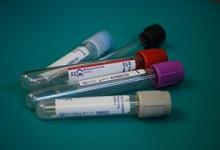Tocilizumab Beats Anti-TNFs for Treatment Retention Save

Patients with rheumatoid arthritis (RA) who had previously had an inadequate response to one biologic agent remained on tocilizumab (Actemra) longer than on a tumor necrosis factor (TNF) inhibitor, whether or not conventional disease modifying anti-rheumatic drugs (DMARDs) were given concomitantly, a European study found.
Among patients enrolled in the TOcilizumab Collaboration of European Registries in RA (TOCERRA) registry, which includes patients from 10 countries, the median duration of drug retention was 2.31 years (95% CI 2.07-2.61) for those who initiated treatment with tocilizumab monotherapy, compared with 1.31 years (95% CI 1.18-1.47) for those who started a TNF inhibitor, according to Cem Gabay, MD, of Geneva University Hospitals in Switzerland, and colleagues.
And for those who also received conventional DMARDs, median drug retention with tocilizumab was 1.98 years (95% CI 1.83-2.11) compared with 1.37 years (95% CI 1.30-1.45) for TNF inhibitors, the researchers reported online in Annals of the Rheumatic Diseases.
Tocilizumab is an anti-interleukin (IL)-6 receptor antibody that has demonstrated efficacy in RA for reducing signs and symptoms and preventing progression.
Most international guidelines on the treatment of RA recommend that biologics be used in combination with methotrexate or other conventional DMARDs, but up to one-third of patients use biologics as monotherapy because of intolerance or patient preference. Because conflicting results have been seen in smaller studies of tocilizumab that compared various combination strategies with monotherapy, Gabay's group analyzed data from TOCERRA, which is a pan-European industry-supported project collecting clinical data on treatment with tocilizumab and TNF inhibitors.
Their analysis focused on drug retention -- which "reflects both effectiveness and tolerance of a drug and is reliably assessed in all registries," the authors explained -- and change in disease activity as measured on the Clinical Disease Activity Index (CDAI).
From 2009 to 2017, there were 8,308 new initiations of tocilizumab or TNF inhibitors among patients who had previously failed on at least one biologic. These included 771 courses of tocilizumab monotherapy, 1,773 of tocilizumab combination therapy, 1,404 of TNF inhibitor monotherapy, and 4,660 of TNF inhibitor combination therapy.
Among patients receiving TNF inhibitors, 34.2% were on etanercept (Enbrel), 24.8% were taking adalimumab (Humira), 15.8% were on golimumab (Simponi), 15.1% were taking certolizumab (Cimzia), and 10% were on infliximab (Remicade).
In general, patients receiving tocilizumab were slightly older (55.6 vs 54.4 years) and had longer disease duration (9.6 vs 8.3 years). They also had previously received more biologics, with 27% having used three or more compared with 19.6% for those given TNF inhibitors.
For the TNF inhibitor combinations, the median retention was 1.55 years (95% CI 1.43-1.64) for methotrexate, 1.36 years (95% CI 1.24-1.57) for methotrexate plus another DMARD, and 1.09 years (95% CI 1-1.23) for DMARDs other than methotrexate.
Because some studies have suggested a dose-dependent effect for methotrexate, the researchers also looked at drug retention among patients taking TNF inhibitors according to methotrexate dose. They found that median drug retention was 1.27 years (95% CI 1.04-1.62) for methotrexate doses below 10 mg/week, 1.33 years (95% CI 1.10-1.57) for doses from 10 to 15 mg/week, and 1.64 years (95% CI 1.44-1.82) for doses >15 mg/week.
When they considered reasons for discontinuation, they found that tocilizumab monotherapy was stopped more often for a lack of efficacy than were TNF inhibitor combinations (24% versus 13.9%), while rates of discontinuation were similar in those two groups for adverse events (13% vs 13.6%). However, in the majority of cases, the reasons given for discontinuation were classified as "other," suggesting that this could include remission, pregnancy, and patient preference.
Changes in CDAI scores were similar across the groups over time. At 1 year, the mean adjusted change was -3.58 for the tocilizumab monotherapy group, -3.68 for the tocilizumab combination group, -3.54 for the TNF inhibitor monotherapy group, and -3.34 for the TNF inhibitor combination group.
Rates of low disease activity according to the CDAI were slightly lower in the TNF inhibitor monotherapy group, while Disease Activity Scores in 28 joints rates of low disease activity and remission were higher among tocilizumab patients.
The results of this study "showed that drug retention was significantly longer with tocilizumab than TNF inhibitors, even when tocilizumab was used as monotherapy and TNF inhibitors in combination therapy," Gabay's groups wrote.
In addition, the findings suggest that tocilizumab monotherapy may be a useful option for patients who are unable to tolerate conventional DMARDs, they concluded.
Study limitations included its observational design and a lack of data on potentially important factors such as comorbidities.
TOCERRA is funded by Roche.










If you are a health practitioner, you may Login/Register to comment.
Due to the nature of these comment forums, only health practitioners are allowed to comment at this time.